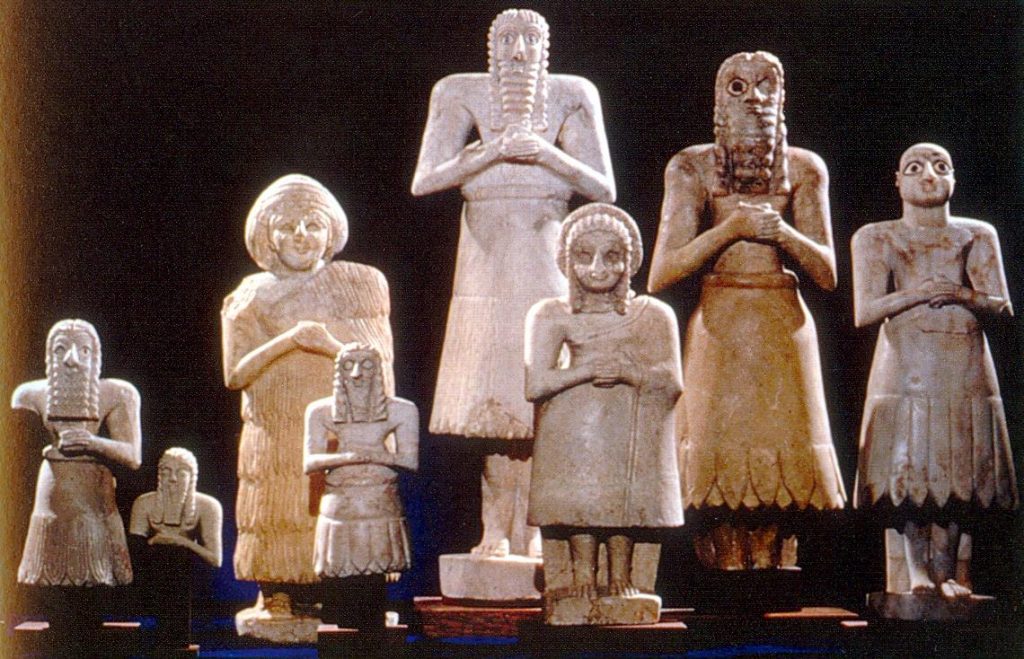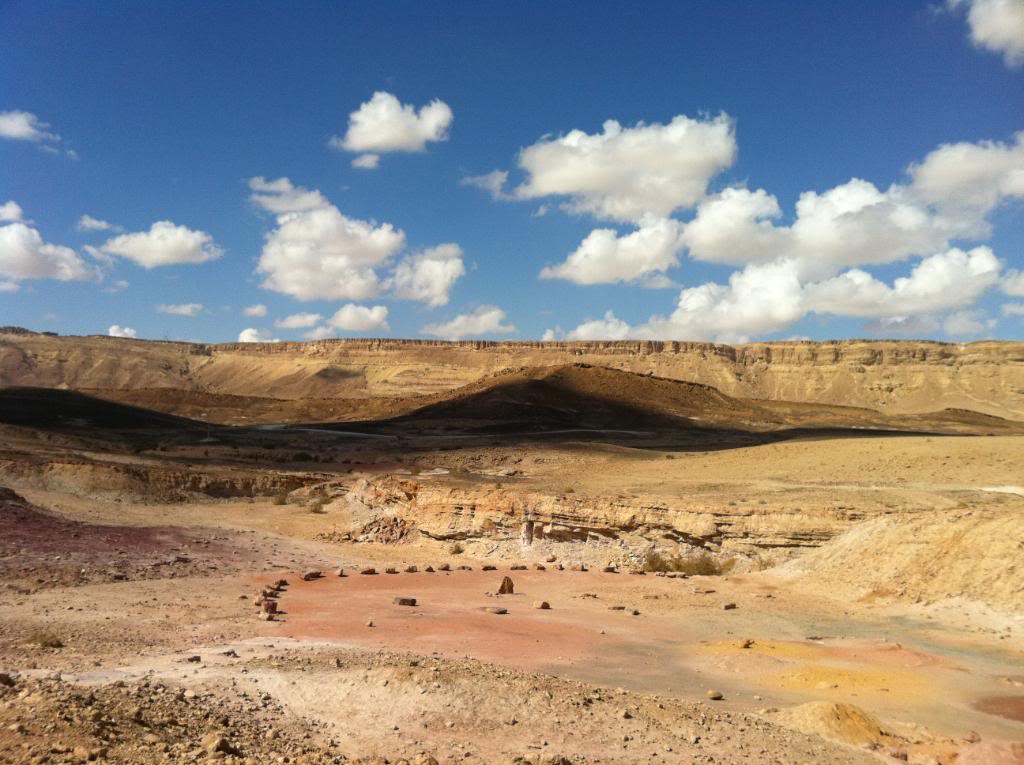
(3-4 Minute Read)
Genesis 12:1 – 17:27
Lekh lekha is a Hebrew phrase generally translated as “Go for yourself,” and is the first key phrase of the Torah portion, or parasha, of the same name. The Almighty first instructed Abram to depart from his native land and his father’s house with his family and journey to the land of Canaan. Upon arrival, there was a famine in the region, and Abram traveled further to Egypt. Fearing the Egyptians, Abram deceptively claimed that Sarai, his wife, was actually just his sister. Discovering the deception after a series of plagues upon Pharaoh and his household for attempting to take Sarai, the Egyptians angrily sent Abram and his wife away. Abram then settled in the Negev region; his nephew, Lot, moved towards the plain of Jordan, which included Sodom and Gomorrah.
There was a war between four kings and five kings, and Lot was captured. Abram successfully rescued Lot, and he paid tithes and worshipped along with Melchizedek, the king of Salem. The Most High made a covenant with Abram, promising him descendants that would live in the land of Israel. Abram took Hagar, Sarai’s maidservant, as a second wife, and she became pregnant with Ishmael. Following a dispute with Sarai, Hagar fled, but was encouraged by a malakh, or angel, to return to Abram’s household.
The Holy One, Blessed be He, reiterated His covenant with Abram, and changed his and his wife’s names to Abraham and Sarah. He also instituted brit milah, or circumcision, as the physical sign of this covenant. The Eternal One also promised that Abraham and Sarah themselves would have their own biological heir, rather than Ishmael.

The first aspect of this Torah portion that should be noted is the usage of the terminology, “go for yourself,” or lekh lekha. In both Hebrew and English, this is a unique phrase. But what does “go for yourself” really mean? There is a plethora of rabbinical commentary on this matter, with Rashi and the RambaN discussing the grammatical context of the wording. While some, such as Rashi, contend that archaic Hebrew grammar doesn’t require any further explanation, there are other opinions that note that “go for yourself” indicates that Abram’s departure “from his native land” and “from his father’s house” relates to the benefits derived from this journey (i.e. “go for your own benefit”).
There is another idea that is compatible with the aforementioned concept. The Hebrew words lekh and lekha are actually the same consonantal word with different vowel notations. What that means is that both lekh and lekha consist of the Hebrew letters lamed and kaf; the small markings that function as vowels are the only differentiators. In that context, without the vowels, lekh lekha, “go for yourself,” could also be translated as lekh lekh, or “go, go.” But if so, then why would the Almighty say “Go, go from your native land and your father’s house to the land I will show you…”?
One thought is that lekh lekha, or perhaps lekh lekh could refer to a “double journey” of sorts. Abram and Sarai were told by the Most High to depart both physically and spiritually to the region that would ultimately become the land of Israel. Thus, lekh lekha could potentially be construed as “Go physically and go spiritually…” Interestingly enough, the content of the rest of the Eternal One’s command related to Abram leaving his native land and his father’s house. Leaving Abram’s “native land” clearly referred to Haran and also Ur of the Chaldees. But what about leaving “his father’s house”?
The Midrash, or Jewish oral tradition, gives us a much better glimpse into the life of Abram as he lived in the household of his father, Terah. As described in the traditional accounts, Terah was not only an idolater himself, he even owned an idol shop to further idolatry and financially profit from it. Abram, however, had pondered the nature of the universe and brought himself to an acknowledgement of the monotheistic Creator. Accordingly, he notoriously turned away his father’s customers, discouraging them from idol worship. In one anecdote, Abram staged a “rumble” between the idols, claiming that they had been fighting with each other over a grain offering. In reality, Abram had smashed all of the idols except the largest idol and placed a club or weapon in his “hands.” When Terah found all of his idols (and livelihood) destroyed, he demanded an explanation. Abram lied and recounted the foolish story of the “idol brawl.” Terah was furious, emphasizing that objects of wood, stone, silver, and gold were completely lifeless and could never do such a thing. Abram replied, “Exactly! So why do you or anybody else worship them?” (Spoiler alert: Terah was not impressed; and neither was Nimrod, the oppressive tyrant of the region.)

The point is simply that, according to the Midrash, the “house of Abram’s father” was essentially synonymous with extensive idolatry. Thus, while not detracting from the standard interpretation of lekh lekha as “go for yourself,” there is potentially merit to considering this phrase to additionally mean, “Depart physically from your native land, and depart spiritually from your father’s house, especially the idolatry. And go to the land that I will show you [the land of Israel].”
We can potentially see this pattern again in Bereishit (Genesis) 13. Abram and his nephew, Lot, had become too numerous to share the same land. Abram allowed Lot to decide which direction he would go, and Abram committed to traveling in the opposite direction. Lot observed the plain of Jordan, which was extremely fertile at that time. Lot moved into that region, despite the fact that Sodom and Gomorrah and similar settlements had already been established there. We learn from later portions of the text that these cities were notoriously evil and oppressively wicked. Lot, however, focused on the material benefits rather than the spiritual. As Abram traveled in the opposite direction, the Almighty again communicated with him, promising to give to Abram and his descendants the land where he now dwelt, i.e. the land of Israel. In other words, for the second time Abram had made the decision to lekh lekha, or lekh lekh. He “departed for his own benefit”; or he “departed physically” from the land shared with Lot near the plain of Jordan, and “departed spiritually” from the wickedness of Sodom and Gomorrah. In the first instance of lekh lekha, the Most High commanded Abram to “go for his benefit.” In this second case, however, Abram of his own accord made the decision to depart for his own physical and spiritual benefit. Accordingly, the Master of the Universe declared that He would bless Abram and his descendants in the land immensely. Conversely, contrary to his human expectations, Lot did not fare well. He ultimately lost all of his possessions and property later when Sodom and Gomorrah was utterly destroyed. Lot was willing to risk his spiritual welfare for the sake of material gain; but in the end, his decision actually cost him everything. Abram, who made the right decision spiritually, was ultimately blessed by the Most High both spiritually and physically.
May the Holy One, Blessed be He, ever guide us and strengthen us as we make our way through life’s “journeys.” And may we always direct our lives, with the assistance of the Almighty, to “depart physically” and “depart spiritually” from those life situations which are negative and unhealthy for us, reaching higher and better levels of Torah living and ensuing blessings.


